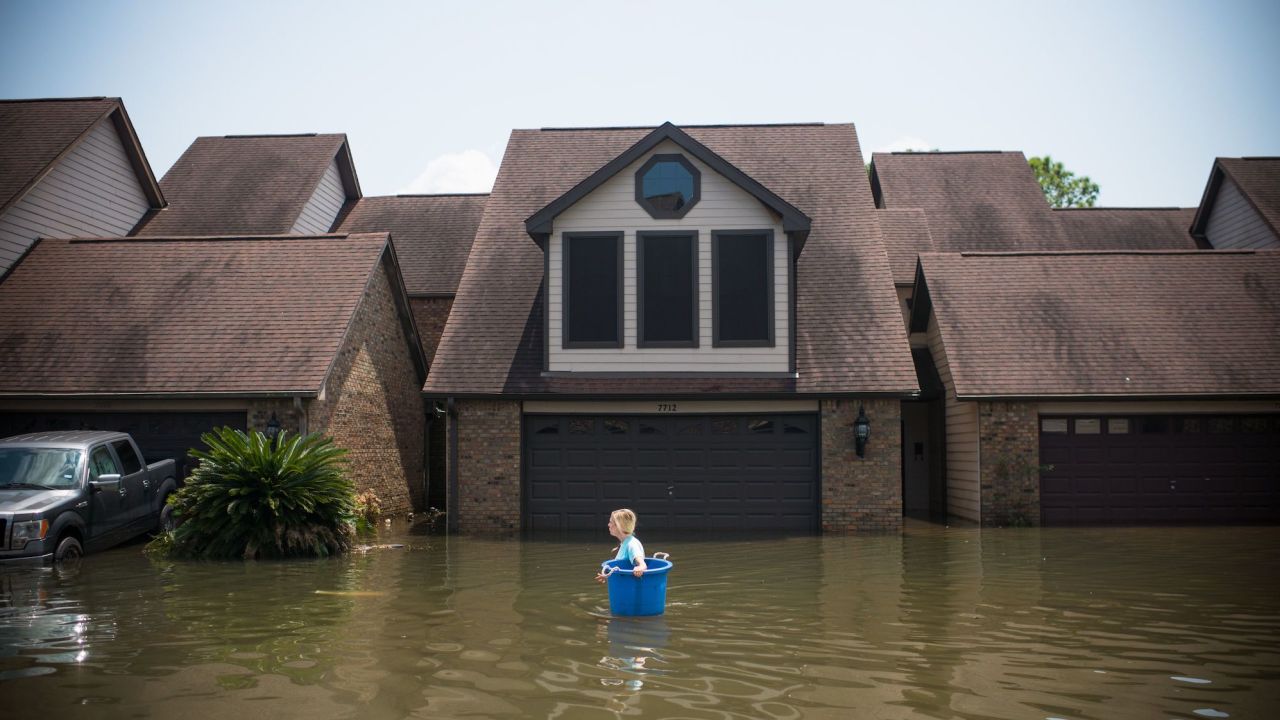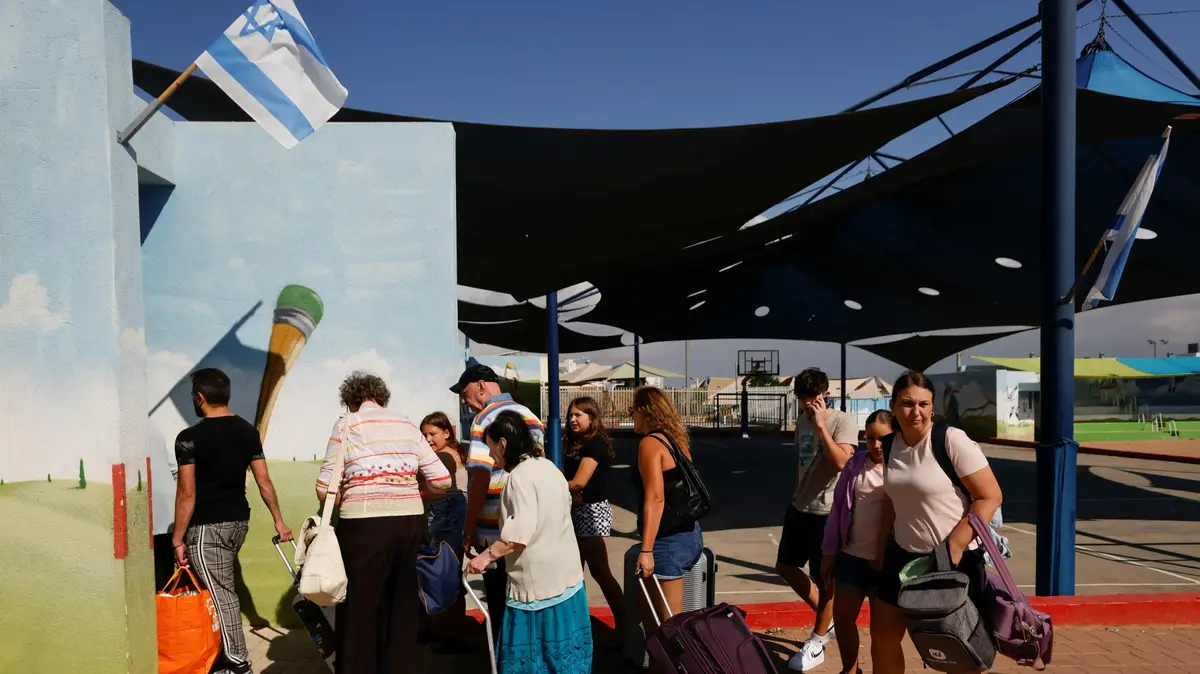Ian is affecting the citrus industry in Florida 1:14
(CNN) --
Hurricane victims returning to their damaged homes face a torrent of challenges, if they're lucky enough to have a house standing.
floods.
Mold damage.
Headaches with insurance.
Hidden deadly dangers.
The onslaught of mental anguish and danger following the hurricane can seem overwhelming.
Here's how survivors can stay safe, get help, and take their first steps toward recovery:
Don't come home until it's really safe
Just because the hurricane has passed doesn't mean it's safe to drive.
Residents should "go home only when local officials say it is safe to do so," says the Federal Emergency Management Agency (FEMA).
advertising
If you see a flooded road, officials insist on a lifesaving but often ignored mantra: "Turn around, don't drown."
More deaths occur each year from flooding than from any other storm-related hazard, says the National Weather Service.
"Don't drive in flooded areas: Cars or other vehicles won't protect you from flood waters," says the US Centers for Disease Control and Prevention (CDC).
"They can be washed away or they can get stranded in moving water."
If it is too dangerous to return home, search for open shelters in your area on the Red Cross or Salvation Army websites.
You can also download the FEMA mobile app to find open shelters, text
SHELTER
and your ZIP code to
4FEMA
( or
43362)
.
Take extreme precautions when you get home.
When it's safe to go home, try to arrive during daylight hours so you don't need any additional light sources, the CDC suggests.
There may be no electricity in the area.
Once you arrive, "walk carefully around the outside of your home to check for loose power lines, gas leaks, and structural damage," says the National Weather Service.
If your home is flooded, "wait to re-enter it until professionals tell you it's safe, with no structural, electrical, or other hazards," the CDC says.
If the home is damaged, "get out immediately if you hear unusual movements or noises," the CDC says.
"The strange noises could mean that the building (is) about to fall."
If you must use lighting, bring a battery-powered flashlight, not candles or gas lanterns.
"Turn on your flashlight before entering an evacuated building," says the National Weather Service.
"The battery could produce a spark that could ignite a possible gas leak."
Minimizes the risk of electrocution
Flooded houses require extra precautions to prevent electrocution.
"If you have standing water in your home and you can turn off the main power from a dry location, then turn off the power," the CDC says.
"If you have to step into standing water to access the main switch, then call an electrician to turn it off. NEVER turn electricity on or off or use an electrical tool or appliance while standing in water."
In general, "don't wade through floodwater, which can contain dangerous disease-causing pathogens, debris, chemicals, residue and wildlife," says FEMA's Ready.gov website.
"Underground or downed power lines can also electrically charge water."
Photograph the damage and seek help if necessary
If it's safe to enter, don't start cleaning right away.
First, "contact your insurance company and take photos of the house and your belongings," the CDC says.
Those seeking federal assistance can call 1-800-621-FEMA (1-800-621-3362 or TTY 1-800-462-7585) or apply at DisasterAssistance.gov.
Residents who have flood insurance from FEMA's National Flood Insurance Program can start their claim at FloodSmart.gov.
Clean safely and watch out for mold
"If your house was flooded and has been closed for several days, assume your house has mold," the CDC says.
"You have to dry everything completely, clean up any mold, and make sure you don't still have a moisture problem."
The CDC has a list of ways to kill and prevent mold growth, with or without electricity.
Mold can be cleaned using a mixture of 1 cup of bleach with 1 gallon of water.
Don't use the bleach solution indoors: Make sure the doors or windows are open, the CDC says.
But anyone with a lung condition like asthma or who is immunocompromised "should not enter buildings with indoor water leaks or mold growth that you can see or smell, even if they don't have a mold allergy," states the FEMA Ready.gov website.
"Children should not be involved in the cleanup of the disaster."
Any remaining floodwater may contain sewage and other hazards that may be difficult to see.
"Floodwater can contain dangerous bacteria from sewage overflow and from agricultural and industrial runoff," the CDC says.
"Although skin contact with flood water does not in itself pose a serious health risk, eating or drinking anything contaminated with flood water can cause illness."
Don't succumb to deadly heat
With widespread power outages anticipated, it's critical not to overexert yourself when there's no air conditioning.
"If exertion in the heat causes your heart to pound and leaves you short of breath, STOP all activity," the CDC warns.
"Get to a cool or shady area and rest, especially if you feel dizzy, confused, weak, or pass out."
In intense heat, it's also important to drink plenty of fluids "regardless of how active you are," the CDC says.
"Don't wait until you're thirsty to drink."
Heat waves: how to protect yourself from extreme heat and what diseases and problems it can cause
Never use a portable generator indoors
Generators can be immensely helpful to cyclone victims who have lost power, but they can be deadly when used incorrectly.
"Carbon monoxide poisoning is a leading cause of death after storms in areas experiencing power outages," says the National Weather Service.
"Never use a portable generator inside your home or garage," even if the doors and windows are open.
"Use the generators only outside, more than 6 meters away from your house, doors and windows," says the NWS.
Take extreme precautions when using gas appliances, as they can also cause carbon monoxide poisoning.
It's also a good idea to have a battery-powered carbon monoxide detector, since carbon monoxide is invisible and odorless.
Make sure food and water are safe
Keep refrigerator and freezer doors closed as much as possible until the power comes back on.
If less than four hours have passed, the food is still safe to eat.
Otherwise, the food may spoil and cause serious illness.
"When in doubt, throw it out," says the CDC.
Throw away any food that may have come in contact with flood water or storm water, perishable food that hasn't been properly refrigerated, and anything that doesn't look, smell, or feel like it should.
If a boil water advisory has been issued in your area, take it seriously.
If boiling water is not possible, use bottled water.
But never use suspected or confirmed contaminated water for washing dishes, brushing teeth, washing and preparing food, washing hands, making ice, or preparing baby formula.
Find creative ways to keep your phone battery powered
Ideally, residents should have ways to charge cell phones without using electricity, such as with an external battery pack or battery charger.
Those without it will have to be creative, like using the car and an adapter to charge the phone.
take care of your emotional health
"Stress, anxiety, and other depression-like symptoms are common reactions after a disaster," says the Substance Abuse and Mental Health Services Administration.
When logistical nightmares collide with overwhelming emotions, don't try to resist alone.
That may actually impede your recovery, the CDC says.
Jenna Fountain carries a bucket to retrieve items in Port Arthur, Texas, in the aftermath of Hurricane Harvey in 2017. Credit: Emily Kask/AFP/Getty Images
"Caring for your emotional health during an emergency will help you think clearly and react to urgent needs to protect yourself and your family," says the CDC.
"Coping with these feelings and getting help when you need it will help you, your family and your community recover from a disaster."
Storm victims can contact SAMHSA's Disaster Distress Helpline by calling or texting 1-800-985-5990.
The Helpline "is a national, 24-hour-a-day, 365-day-a-year hotline dedicated to providing immediate crisis counseling to people experiencing emotional distress related to any natural or man-made disaster by man," SAMHSA's website says.
"Our staff members provide advice and support before, during and
after disasters and refer people to local disaster-related resources for follow-up care and support."
Hurricane














/cloudfront-eu-central-1.images.arcpublishing.com/prisa/EXJQILQR5QI7OMVRTERD7AEZAU.jpg)